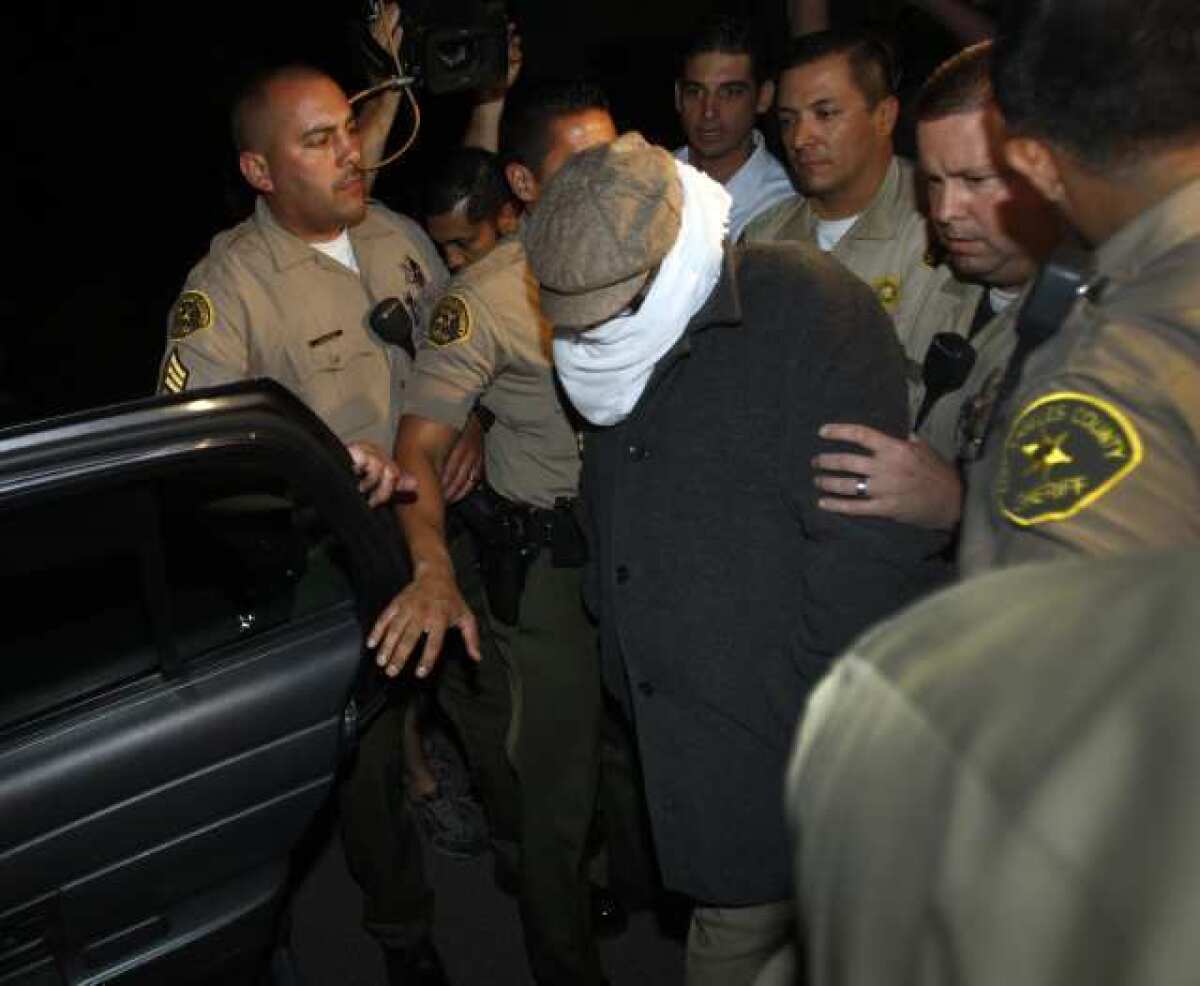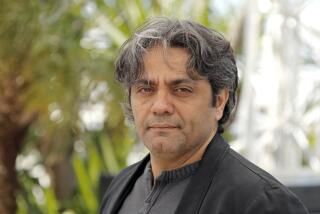‘Innocence of Muslims’ filmmaker sentenced in probation case

- Share via
The filmmaker behind “Innocence of Muslims,” the anti-Islam film that sparked rioting across the globe, was sentenced Wednesday to a year behind bars after he admitted to violating the terms of his release from an earlier conviction.
Mark Basseley Youssef admitted to four violations, including lying to his probation officer and using bogus names. In exchange, prosecutors dropped four other counts, which included allegations that Youssef lied to federal authorities in telling them his role in the film’s production was limited to writing the script.
Youssef was under a type of federal probation known as supervised release after a 2010 conviction on bank and credit card fraud, in which he was accused of causing $800,000 in losses. Prosecutors also said Wednesday that they had agreed not to file new criminal charges based on Youssef’s false statements to his probation officer.
Youssef was arrested in late September after a trailer for the film, which portrays the prophet Muhammad as a womanizer and a pedophile, was uploaded onto YouTube and caused widespread outrage. Yet prosecutors and the judge emphasized Wednesday that the film’s message was irrelevant to Youssef’s probation violation case and prison sentence.
“I’m not going to say much about the movie because he’s not here because of the content of the movie,” Assistant U.S. Atty. Robert Dugdale said.
“Agreed,” U.S. District Court Judge Christina Snyder said abruptly, interrupting the prosecutor.
Nonetheless, Youssef’s attorney, Steven Seiden, told reporters outside court that his client was being punished for exercising free speech.
“In my opinion, the government used these proceedings to chill my client’s First Amendment rights,” he said.
Through Seiden, Youssef, who previously changed his name from Nakoula Basseley Nakoula and who also has gone by the name Sam Bacile, asked the judge to allow him to serve the sentence in home confinement.
Dugdale objected, saying Youssef’s record of fraud and deception made the violations particularly serious.
“This is not a defendant that you want out there using multiple names,” he said, noting Youssef had a passport under one name and a driver’s license under another, and worked on the film under a third identity.
He said actors and actresses who answered Youssef’s casting calls were victimized when he dubbed the film with controversial dialogue that wasn’t in the script. Members of the cast contacted the probation office, saying that their careers were ruined and that they were receiving death threats, Dugdale said.
Seiden countered that it was the right of any filmmaker to alter a film and that cast members had signed releases.
Snyder, citing what she called Youssef’s “continuing deception,” denied the request for home confinement and sentenced him to one year in prison followed by four years of supervised release.
More to Read
Sign up for Essential California
The most important California stories and recommendations in your inbox every morning.
You may occasionally receive promotional content from the Los Angeles Times.











